The BASIS Curriculum, refined for over two decades, educates students to the highest international levels

After the first BASIS Curriculum School opened in 1998, the academic program quickly gained notoriety for its breadth, depth, and ability to successfully teach high-level content and critical thinking to students at a young age. With each new campus, the curriculum was refined and optimized, and the reputation strengthened. Today, the BASIS Curriculum is consistently recognized among the best on both national and international stages. An exceptional academic program is built around exceptional teachers: their deep expertise and ability to inspire is as fundamental to our program as Mandarin in the Early Years or concurrent sciences in middle school.
Education Redefined
At BASIS Independent Schools, we’re proud to contribute to the tradition of excellence, one of putting student learning first and creating an environment of supportive collegiality between students, teachers, and administration. Education redefined rests on three pillars:
- A curriculum educating students to the highest international levels
- Expert teachers who are knowledgeable, passionate, and believe that with the right support and encouragement, any child can excel
- A joyful learning culture where hard work is celebrated and intellectual pursuits result in extraordinary outcomes
(Grades 1–3)
(Grades 4–5)
(Grades 6–8)
Early Years
We encourage early learners’ natural propensity to question, to create, and to discover. We create an enjoyable, intentional learning experience rooted in early literacy and numeracy. Coursework centers around giving students tools to understand the world around them. Our Discovery Blocks of Learning curriculum exposes students to everything from social studies to self-care skills, mathematics and Mandarin, to expressive arts. Teachers with expertise in early childhood education facilitate opportunities for children to thoughtfully and purposefully interact with materials, use their imagination and creativity to inspire questions, and use their own reasoning skills to learn from and connect to the world around them.
In kindergarten we build on the love for learning instilled in PreK to lay a strong foundation for success in the years to come. Success for us means not only the acquisition of foundational concepts and skills, but also the adoption of scholarly habits and immersion in a culture which values learning above all other endeavors.
(Grades 1–3)
Primary Years (Grades 1–3)
During the Primary Years, our curriculum emphasizes the connections between students’ seemingly discrete subjects of humanities, math & science, engineering, performing arts, music, Mandarin, fine art, and physical education. Students even have a dedicated weekly 85-minute period called “Connections,” a hands-on learning experience designed to fuel creativity, ingenuity, and social skills like teamwork and patience.
Students benefit from a unique co-teaching model as they move from class to class for the first time. A different Subject Expert Teacher (SET) specializing in a particular discipline leads instruction of content for each subject. Students’ Learning Expert Teacher (LET) guides them to each class, focuses on effective pedagogy, and co-teaches with each (SET). Because the LET remains with the students throughout the school day, they are always there to aid in the scholastic and social development of students, and lead progress monitoring, parent communication, and delivery of enrichment or support.
LETs and SETs facilitate a rapid transition from a focus on foundational skills and knowledge to independent thinking, active learning, and application of knowledge by emphasizing connections between disciplines and reiteration of key concepts throughout the curriculum.
(Grades 4–5)
Bridge Years (Grades 4–5)
Students are taught exclusively by Subject Expert Teachers, many of whom hold advanced degrees. Student support takes on a variety of forms, from student hours and one-on-one support with Deans to the independence cultivated in the Primary Years
The spiraled curriculum features classes that are 50 minutes long, with humanities breaking into English and history, and math & science also taught separately. In grade 5, Academic Enrichment is introduced, offering students time to approach teachers with questions and work independently on homework. In addition to core disciplines, coursework includes classics, two science classes, and Latin.
Together, the Bridge Years transport students from their foundational years to an intermediate program focused on mastering basics necessary for an advanced curriculum.
(Grades 6–8)
Intermediate Years (Grades 6–8)
In the Intermediate Years, students complete a rigorous schedule in all core disciplines, including three separate, concurrent science classes (biology, chemistry, and physics), and a world language. Students can choose an elective beginning in grade 6 and a world language option beginning in grade 7. The spiral of the curriculum is highly apparent in these grades, particularly regarding revisiting science concepts in greater depth, as students prepare for entry into Honors or Advanced Placement (AP) level coursework starting in grade 9.
Subject Expert Teachers (SETs) partner with Deans and Directors of Student Affairs to ensure students are set up for success in coursework not typically seen at the middle school level.
Thinking for Problem-Solving (Grades 9–12)
In the High School years, the world-renowned BASIS Curriculum is unmatched in breadth and depth. Under the guidance of passionate Subject Expert Teachers who are deeply invested in their success, students gain the best possible preparation for college and hone skills and habits through critical thinking opportunities typically reserved for university-level studies.
In core disciplines, Honors is the minimum level offered, with a large percentage of courses taken at the Advanced Placement® (AP®) level. Many schools reserve AP courses for their top performers’ final years in school, but we require AP coursework—4 AP courses and exams—for all students and make them available starting in grade 9. Students further develop their ability to think and work independently in post-AP courses and independent research projects. They also participate in a year-long, daily college counseling seminar in their senior year designed to help them find the right school and ready their applications.
The senior year culminates in a 3-month, off-site Senior Project, proposed and constructed by students under the guidance of an internal faculty adviser and an external professional specialist in the field of the student’s choosing. Students apply their academic content knowledge in a professional or research setting and demonstrate individual accountability and a facility with problem solving. BASIS Curriculum graduates leave our program prepared to be leaders in college and beyond.
Disciplines
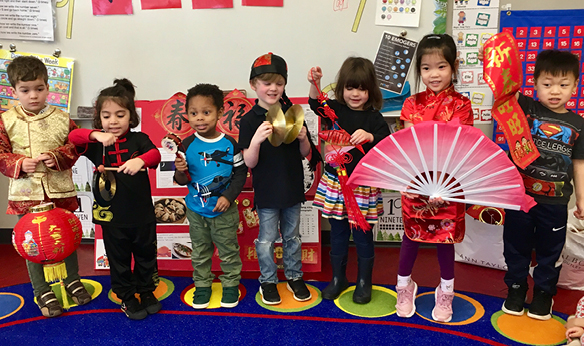
The humanities curriculum begins with the building blocks of literacy and quickly helps students establish a strong foundation in reading, writing, and historical awareness. As coursework evolves from awareness of self and community in the Early Years to integrated coursework in history and English in the Primary Years, deeper content in classics, and ultimately the societies that have shaped the current day, BASIS Curriculum students develop a deep and broad understanding of historical periods and cultural differences, as well as the skills to analyze and critique all types of representational media.
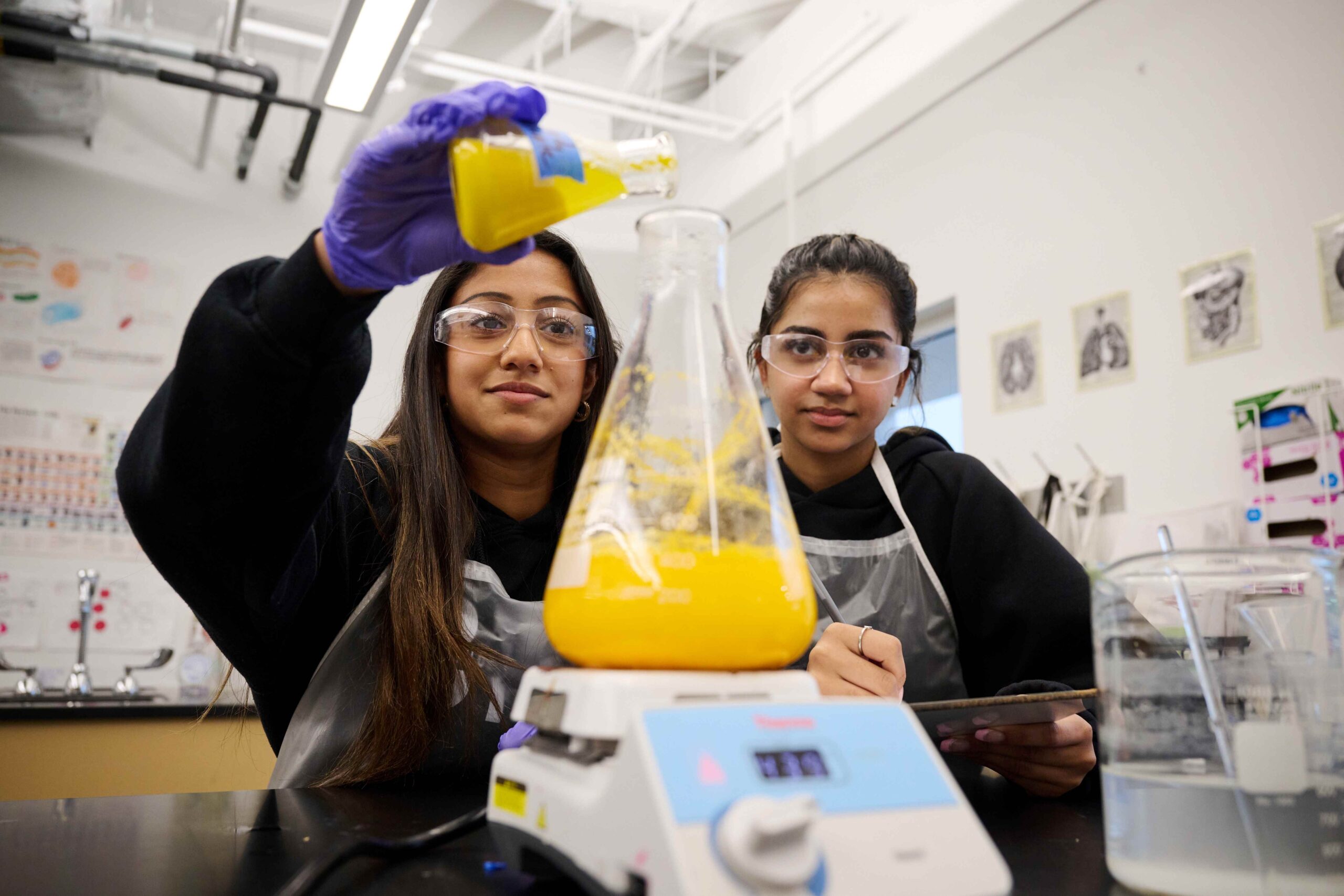
All students take high-level mathematics courses earlier than usual, and begin learning chemistry, physics, and biology as separate courses in grade 6. Graduates have passed all three sciences at the Honors level and have completed at least one Advanced Placement (AP) math and science course. Our math program is accelerated with spiraling topics and homework problems giving students ample practice and opportunity to strengthen fundamental skills. Our high schools offer many Post-AP courses in mathematics and sciences that provide students opportunities to apply their knowledge in new and advanced contexts.
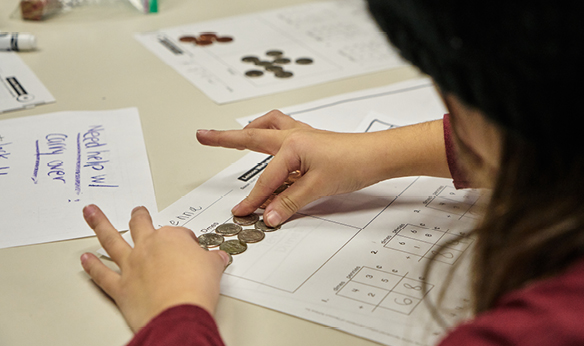
Interdisciplinary coursework is present throughout the program, from a dedicated hands-on class in the Primary Years called “Connections” where cross-subject discovery is a key objective, to Bridge Years courses like Classics and Physical Geography, through High School Economics, and on to independently developed and investigated Senior Projects. We believe that teaching students to make connections across disciplines inspires the creative, independent thinking that prepares students for life and work.
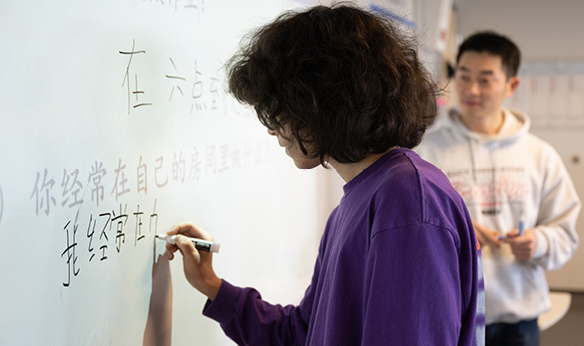
All BASIS Curriculum Schools, students are required to master the foundations of World Languages, as well as study the influence and applications of language in various fields.. Students begin with Mandarin in the Early and Primary Years, continue on to Latin in the Bridge Years, and conclude with the study of Latin, Mandarin, French, or Spanish in the Intermediate and High School Years. Through our Language program, we’re instilling different ways of approaching information, of composing thoughts, reflecting on and building their vocabulary in English, and ultimately, broadening students’ world views.

The arts inspire students to develop creative, innovative ideas, encourage different modes of self-expression, and help students make meaningful aesthetic connections between themselves and the world. Students take classes in fine arts, performing arts, and music. Starting in our earliest years, students explore diverse themes of historical and contemporary significance. Art courses are offered as an elective and offer students the opportunity to study an instrument, participate in a work of theater, or deeply examine a specific fine arts history and technique.
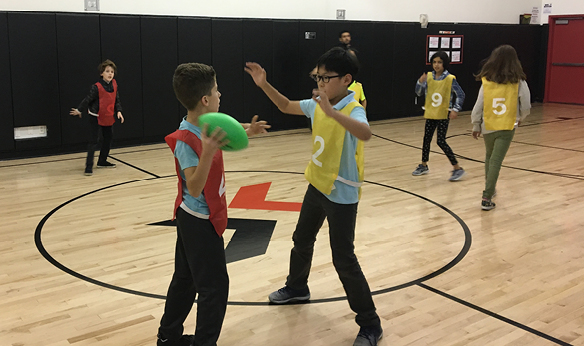
In the BASIS Curriculum’s Physical Education and Movement courses, students learn to maintain healthy bodies, lifestyles, and attitudes through physical activity, organized sports, fitness, and dance. All students are required to take Physical Education in the Early, Primary, and Bridge Years; in the Intermediate Years, Physical Education is offered as an elective. Students in the Intermediate and High School years take PE and Health (requirements vary by campus).
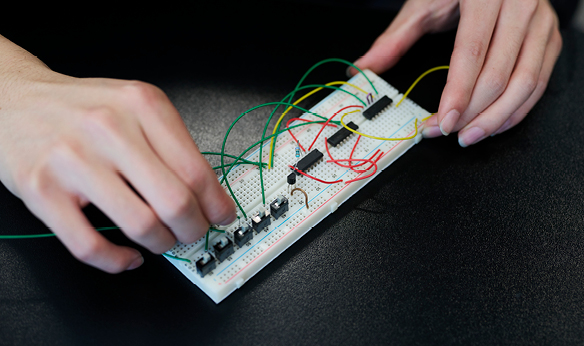
In the Early and Primary Years, students learn the basics of the engineering design process and how to apply that framework in various academic contexts. In the Intermediate Years, Academic Enrichment (AE) is introduced as a vital component of the students’ day as they meet with teachers and get a start on homework. Beginning in middle school, students also have the choice of a wide variety of electives, including fine arts, AP courses such as AP Psychology and AP Statistics, and interdisciplinary courses proposed by teachers based on their passions and expertise. College Counseling, a daily senior year course led by a dedicated college counselor, is designed to set students up for success in planning for their education beyond BASIS Curriculum Schools.
Self-Advocacy & Autonomy
Helping students manage their time and schoolwork effectively is essential to our academic model.
One of our most important tools in developing students with life-long habits of self-direction and disciplined, critical enquiry is the Communication Journal (CJ). At first glance, it’s an analog daily planner. In practice, it’s the epicenter of our students’ educational experience, a record of their previous and upcoming responsibilities, and a way to keep track of their areas for improvement.The CJ is also critical in helping families feel involved in their child’s education. It is the first daily touch-point between teachers and parents and acts as a discussion starter at home between students and their families.
The CJ embodies our academic philosophy not to post homework or grades online, and to keep students central in conversations about their own education. It is the tool that makes this philosophy a powerful growth opportunity for students to own their own academic and intellectual progress.

